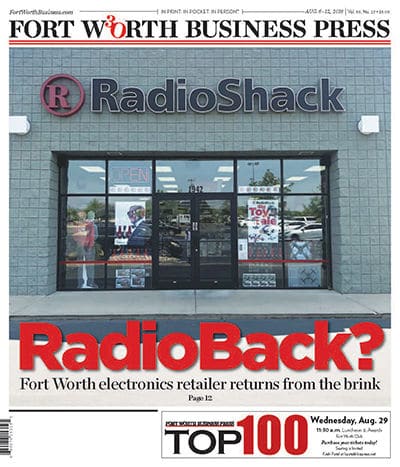What is the DIY Makers Market?
“Right now, makers are crafting the next great idea in their homes or one of the many makerspaces growing all around the world.”
– National League of Cities report on DIY Makers Market
DIY Makers Market is one of the fastest growing segments of RadioShack’s business, but many people ask, what is it?
According to Atmel Corp., the leading manufacturer of microcontrollers and touch technology semiconductors and a major backer of the maker movement, there are an estimated 135 million U.S. adults who are makers. In 2013, Wired magazine reported that the overall market for 3D printing products and similar maker services reached $2.2 billion in 2012, a compounded annual growth rate of almost 29 percent when compared to the $1.7 billion the industry recorded in 2011. Projections are expected to reach $6 billion by 2017 and reach $8.4 billion by 2020.
– Source: National League of Cities
Few companies can take the beating that RadioShack has and still keep on ticking.
But eight months after emerging from bankruptcy for the second time, the 97-year-old Fort Worth electronics retailer is proving that it has a few answers for those who have questions about its future.
Formerly publicly traded, RadioShack is now privately owned so company leaders won’t discuss its financial picture.
Nevertheless, leaders are eager to spotlight an ambitious plan for growth based on innovative strategies and continued support of loyal customers who hanker for its batteries, gadgets, electronics parts and a growing market for DIY maker kits.
“We’re happy with where we are,” said Steve Moroneso, CEO of General Wireless Operations Inc. DBA as RadioShack.
Well before RadioShack emerged from its second bankruptcy on Jan. 1, company leaders began a reinvention that would help RadioShack power through the upheaval in the retail industry, especially for firms focused on sales from brick-and-mortar stores.
RadioShack was a tour-de-force with that approach, operating 7,500 corporate stores at its peak in 2000 across the United States as well as well as international locations such as Mexico, the United Kingdom and Australia.
Now the company has no corporate stores and is focusing on e-commerce and franchising, which company officials call “dealer” operations.
The expansion of its footprint through innovate partnerships is essential to RadioShack’s future success, officials say.
RadioShack is affiliated with more than 400 locations across the country, primarily in rural and outlying areas. Some are freestanding RadioShack-branded stores while others are store-within-a-store concepts operating in computer shops, convenience stores and pharmacies.
“We see the flexibility of the dealer model as important to our growth,” said Matthew Eisner, director of sales, dealers and business-to-business operations. “It’s been the flexibility of this model that has gotten us where we are now from a year ago.”
The recent announcement of a partnership with HobbyTown is another example of RadioShack’s novel approach to reaching customers through traditional retailing without crushing overhead costs.
The arrangement will usher RadioShack’s physical presence brand back into major metro areas.
Through this partnership, HobbyTown will sell RadioShack branded electronics in 60 HobbyTown franchise store locations nationwide. Then it will roll out RadioShack Express, “a store-within-store” concept in more than 100 locally-owned stores, according to a RadioShack announcement.
“We are excited about the HobbyTown partnership, as it will allow us to re-engage and directly serve core hobby and DIY communities,” Moroneso said.
The phased roll-out will bring about 700 products into HobbyTown stores, one of the largest retail hobby and toy operations in the U.S.
Based in Lincoln, Nebraska, HobbyTown has 147 stores spread across 41 states. The chain’s focus on specialty toys and science and technology products, is a good fit for RadioShack products such as radios, headsets and DIY drone kits.
“This will expand the RadioShack footprint quickly and enhance the product selection and services offered at HobbyTown locations,” said HobbyTown President Bob Wilke.
Also in the works for RadioShack is a new service called Fix It Here! This phone and tablet repair service will be available at the RadioShack Express sites in HobbyTown stores as well as RadioShack-branded dealer stores.
“This is an exciting new part of our business,” Moroneso said.
The rollout of the Express sites in HobbyTown stores eventually will bring RadioShack’s presence as close to home base as Dallas and Plano. But first up in Texas be rollouts in the Austin, Houston, San Antonio and Tyler.
Nothing is on the immediate horizon for Fort Worth or Tarrant County even though HobbyTown has stores in Fort Worth, Arlington and Hurst.
But that could change if the search for a dealer group to operate RadioShack stores locally is successful, Eisner said.
“We’re involved in conversations to bring a RadioShack store back to Fort Worth,” Eisner said. “We’re looking for the right partner for a flagship dealer store in our hometown.”
Founded in 1921 by two brothers in Boston as a ham radio store and mail-order catalogue company, RadioShack’s name has been synonymous with Fort Worth since leather goods manufacturer Charles Tandy, looking to purchase hobby-type businesses, bought the Boston brothers’ firm and incorporated it into Tandy Corp. in Fort Worth in 1962.
Focused on emerging technology, the business prospered through the 1970s and 1980s by introducing innovations such as the TRS-80, the first fully-assembled personal computer to be mass-marketed.
RadioShack grew to become a leader in telecommunications through wireless phones and service but its electronics products eventually fell victim to competition from smartphones and retail giants like Walmart and Amazon, which could undercut prices on electronic gadgets.
A joint venture between General Wireless and Sprint was intended to rescue RadioShack from bankruptcy and turn around the company’s 1,500 remaining stores.
Two years after RadioShack’s first bankruptcy filing, General Wireless Operators filed for Chapter 11 bankruptcy in March 2017, placing some of the blame on its partnership with Sprint.
As part of its reinvention plan, RadioShack moved out of its landmark headquarters along the Trinity River in downtown Fort Worth into humbler digs in a distribution center near Meacham Field. The company’s new home is a rental facility that the RadioShack once owned.
Despite its troubles, RadioShack has never lost its appeal to hobbyists, tinkerers and fans of its many products, especially its batteries, HDMI cables, bits and pieces and headphones.
Soldering irons, along with parts and tools, have been a stable and popular item in RadioShack’s inventory. Those products have been revamped to make them perform even better, Moroneso said.
Without a doubt, RadioShack is making a comeback in a big way – with “even bigger things on the way,” Moroneso said.
Read about a former RadioShack’s exec’s new gig:
www.fortworthbusiness.com/news/briefs/home-inspection-former-radioshack-executive-turns-to-franchise/article_af897130-975d-11e8-a428-f76dfa59a7a0.html







